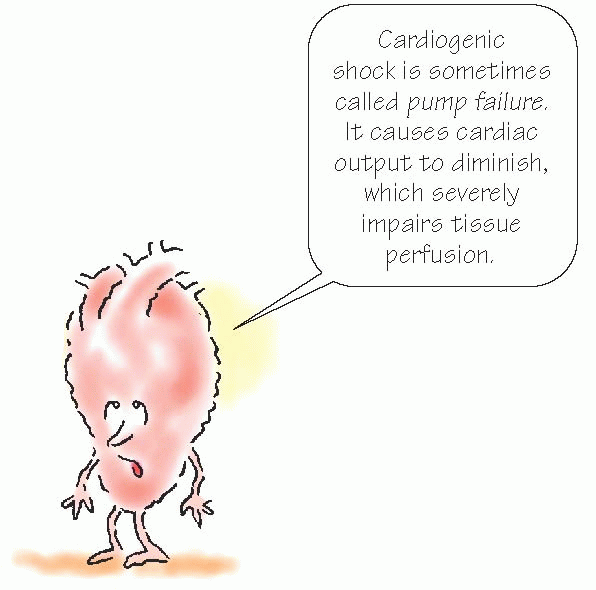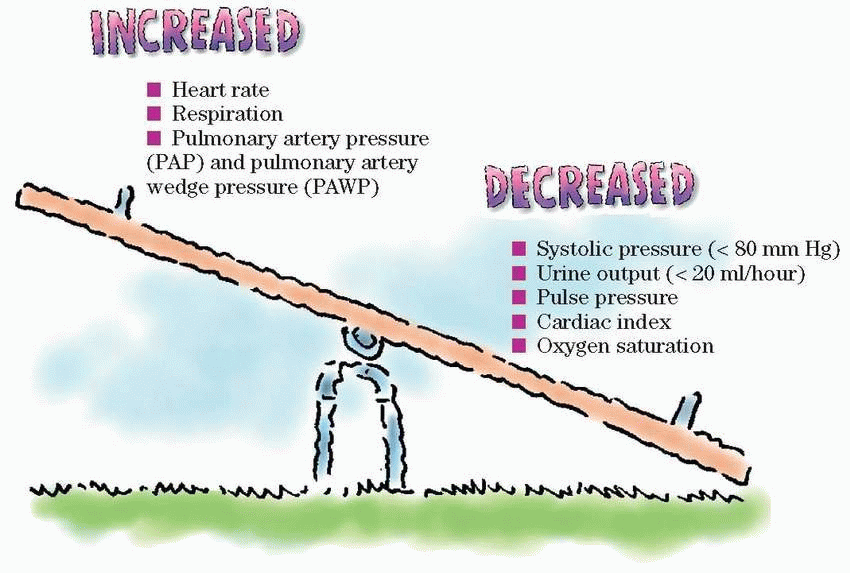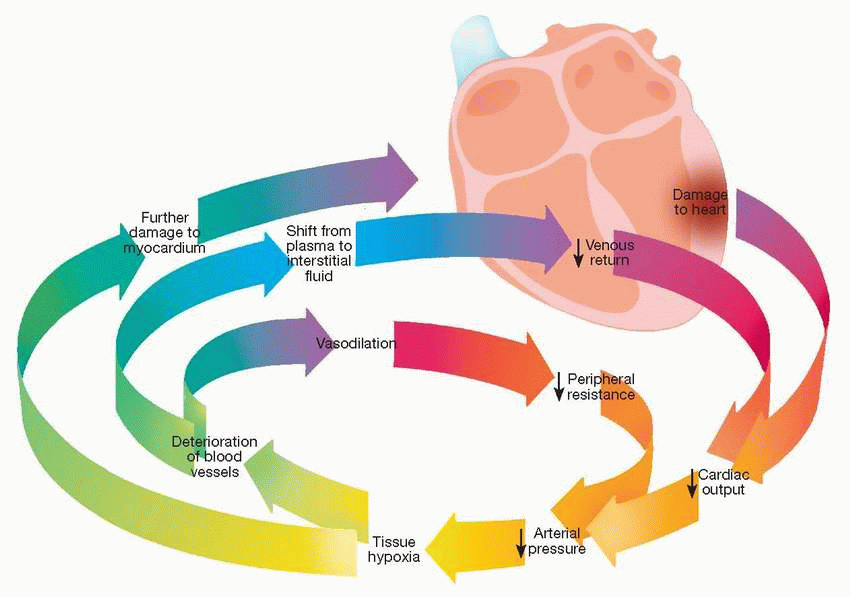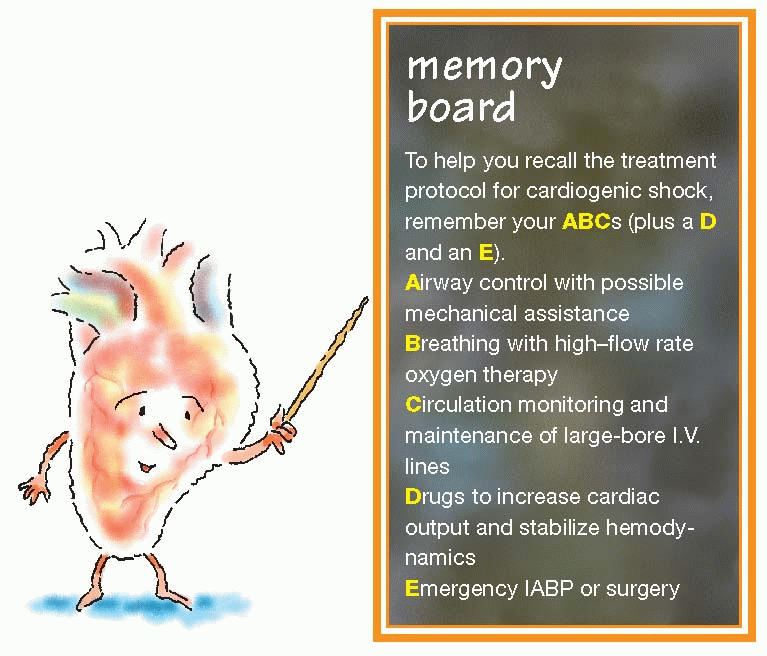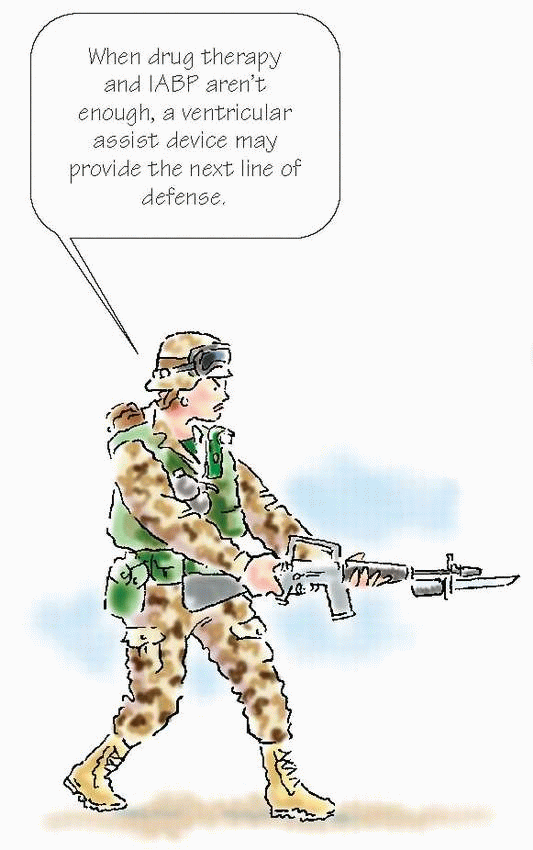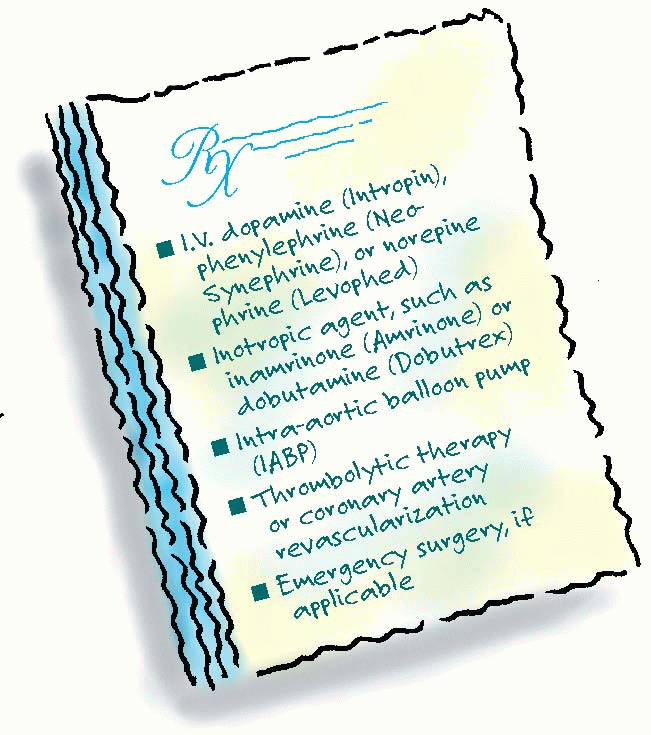Complications
Cardiogenic shock
Cardiogenic shock is a commonly fatal complication of various acute and chronic disorders that can cause cardiac decompensation. It can result from any condition that causes significant left ventricular dysfunction and reduced cardiac output, with the most common cause being acute myocardial infarction (MI).
Signs and symptoms
Cyanosis
Metabolic acidosis
Cool, pale, clammy skin
Weak, thready pulse
Altered mentation
INCREASED
Heart rate
Respiration
Pulmonary artery pressure (PAP) and pulmonary artery wedge pressure (PAWP)
DECREASED
Systolic pressure (< 80 mm Hg)
Urine output (< 20 ml/hour)
Pulse pressure
Cardiac index
Oxygen saturation
|
|
Cycle of decompensation
After an MI, even a slight reduction in cardiac output and arterial pressure can initiate a cycle of cardiac deterioration that results in cardiogenic shock.
|
Hypovolemic shock
In hypovolemic shock, reduced intravascular volume causes circulatory dysfunction and inadequate tissue perfusion. It’s commonly caused by acute blood loss — about 20% of total volume — that can result from:
GI bleeding, internal or external hemorrhage, or any condition that reduces circulating intravascular volume or levels of other body fluids
intestinal obstruction
peritonitis
acute pancreatitis
dehydration from excessive perspiration, severe diarrhea, protracted vomiting, diabetes insipidus, diuresis, or inadequate fluid intake
burns.
Stay updated, free articles. Join our Telegram channel

Full access? Get Clinical Tree



